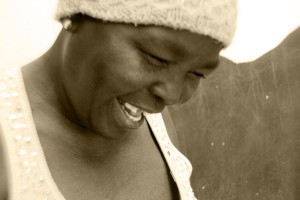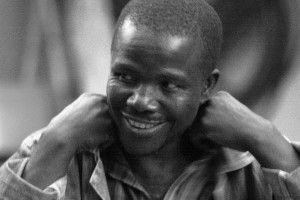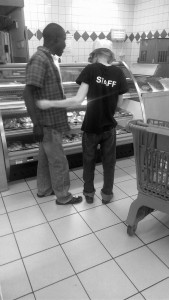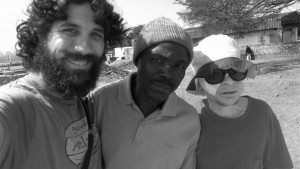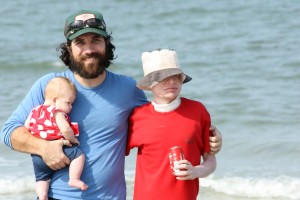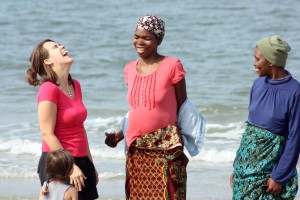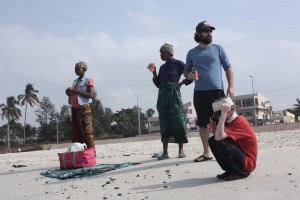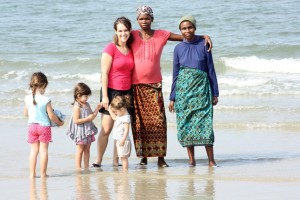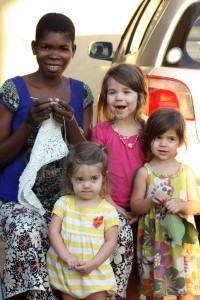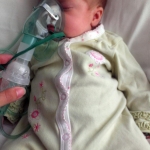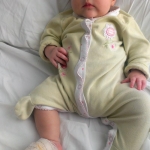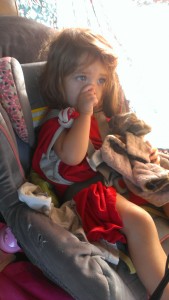A Jon Post
Where did we go? We used to post far more often here. We used to update anyone who happened across this little blog on an almost weekly basis about our lives and the ministry Christ placed us in, here in Maputo.
So what happened? Why the extended times between posts? Why so little substance in the recent posts?
It turns out we are still broken. We are struggling to learn how to do this. We still find ourselves approaching the end of most of our days clawing towards a fitful rest, wondering if we have the strength to do this again tomorrow. We are not trained doctors, nurses, psychologists, or counselors. We’re just a family trying to offer a home to those without one. We’re just a family trying to offer love and comfort to many who lack both.
It’s tough some times.
About 2 months ago, one of our patients died in my arms.
Broken.
Her metastatic throat cancer sent its dark tendrils into her lungs and pulled her breath from her body. Dear Momma Berta held me close, told me goodbye, and slipped home.
About 2 months ago Papa Gary and Ms. Janet in Texas, gave deeply from the bit the Lord trusted them with, and funded the purchasing of more than a half acre of land and the construction of a new home for Casa Ahavá.
Given.
We’ve begun the process to design and build Casa Ahavá from the ground up as a temple to Christ and a home for the sick and dying.
About 2 months ago, one of our patients writhed in pain as his tumor pressed sharply on sensitive nerves in his head and eye.
Broken.
He spent a week barely conscious, calling out for his mother and grandmother, terrified of a painful death.
Layne and I spent that week trading shifts with him making sure that one of us was with him 24 hours per day.
Given.
We slept in the room with him, administered morphine, sang worship songs over him, read scripture to him, and prayed deeply to a Merciful God that there would be peace. In His overwhelming mercy, the Lord brought him back from his pain and today, he is talking of visiting his family over Christmas/New Year then returning to continue his treatment.
About 5 months ago, we welcomed a patient to Casa Ahavá whose brokenness in her family begat bitterness in her heart and who lives now with a physical cancer to match the emotional one that cripples her spirit.
Broken.
Despite our frail attempts to love her and offer her a home and a family, she often spurns love and chooses loneliness and heartache.
Now she approaches the end of her treatment and time at Casa Ahavá and our hope to see Christ’s redemption transform her heart is sinfully weak. In our own brokenness we find it’s easier to choose anger rather than forgiveness, to choose indifference rather than love, to choose clean detachment rather than messy engagement.
Broken.
We are still struggling to learn how to do all of this.
I wish I could say that we are wonderful missionaries representing Christ perfectly to all those with whom we meet, offering only love and bright eyes to the broken and downtrodden.
But I can’t.
In our own brokenness we forget our Great King and choose selfishness over others.
But a great teacher and pastor once wrote that here, in the life of the Beloved, we are broken in order to be given. Our lives and our deaths are the greatest gifts we have to offer, even though both come through a great deal of brokenness.
Just as our Savior took bread…
Broke it.
And Gave it.
So we can choose to be a gift even as we are broken.
That’s what we’re trying to do. That’s what we’re trying to learn as we wipe fevered brows, hold writhing hands, soothe wounded hearts, and smile tired smiles.

